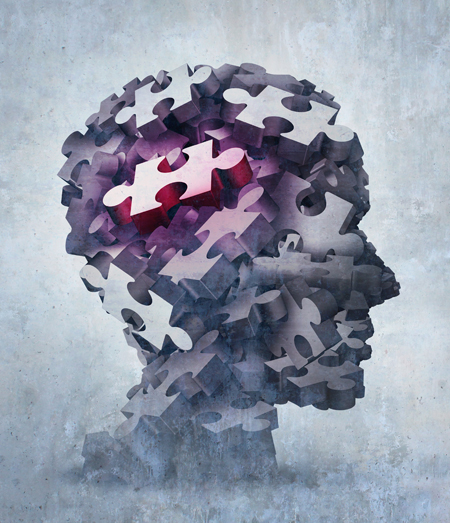 Psychological pain is a pain that can’t be traced to the body.
Psychological pain is a pain that can’t be traced to the body.
An unpleasant emotion… anxious, depressed, angry, sad, worried, overwhelmed.
Tension in the body tied to stress or emotions… knots in your stomach, tightness in your jaw, feeling like the weight of the world is on your shoulders.
Unproductive thinking patterns… obsession, self-defeating thoughts, self-criticism.
Urges to do unproductive things… overeat, use addictive substances, work too much, or even commit suicide.
These are ‘symptoms’ that can only be understood through a lens of ‘psychological pain.’
We are usually pretty clear these things aren’t due to physical illness. That is, they can’t generally be tied to a physical issue.
(These are actually Trailheads that can act as beginning points toward exploring what emotional injuries we have sustained – more about that later.)
We are bombarded with messages to ‘just move on’…
… from betrayals, heartbreaks, or childhood trauma.
To just ‘buck up’ and deal with whatever has happened to you and make the best of things.
That would be great… if it worked. If it were possible to ‘move on’ without dragging the past behind us. It isn’t.
There’s an old golf joke…
A man comes in after a day of golf, and his wife asks, “How was golf, honey?”
“Terrible,” he replies. “On the third tee, George dropped dead.”
“Oh, my Lord! That’s awful!” the wife exclaimed. “What did you do?”
“Well,” the husband sighed, “for the rest of the day it was, hit the ball, drag George.”
It’s like this with our emotional past. We drag it along behind us, whether we want to or not, and whether we are aware of it.
These Trailheads are signposts to what we are dragging along.
We know healing has happened when the pain stops.
Not when we learn better ‘coping skills’ to manage the pain… that concept is actually a bit ridiculous.
What would we say to a doctor who, finding us with a broken leg, gave us ‘skills’ to calm ourselves better when we were having problems with the break in our leg? A skill to better cope with the pain of the broken leg. Some new strategies for getting from here to there despite the awkward bend of our broken leg. We might scream in frustration: “Can’t you fix my leg, so it’s the way it was supposed to be?!?”
Yet we are so used to our psychological pain that we take it for granted that it has to be there – that it’s something we just have to learn to live with.
The Gallup Organization is an expert in polling. Their annual survey in 2018 reported that more than half of US respondents – around 55 percent – reported feelings of ‘high stress’ the day before being polled. And 45 percent said they felt worried ‘a lot of the day,’ and 22 percent said the same of anger.
It’s as if we’re strangely living in the Dark Ages, with 55% of humans walking around with a broken leg. And because we haven’t learned how to repair bone breaks, we take it as ‘normal.’ But just because people think it’s ‘normal’ does not mean there isn’t a greater possibility. A way that human legs can be repaired.
 Psychological pain is so completely different than physical pain.
Psychological pain is so completely different than physical pain.
And mostly, we (as humans) have misunderstood it.
Newtonian physics is straightforward because mechanical predictions are straightforward and observable. Also called Newtonian or classical mechanics, it describes mechanical events – those that involve forces acting on matter – using the laws of motion and gravitation formulated in the late seventeenth century by English physicist Sir Isaac Newton (1642–1727).
Repairing a broken leg works in the realm of ‘Newtonian physics’ – a simple mechanical solution.
The human psyche is a million times more complex. A dazzling array of complexity that is eons beyond what the human mind can understand – we are far greater than the ‘sum total of the mechanical limits of our body.’ Far greater than what can be understood within the laws of Newtonian physics. And far greater than the ability of humans to program a computer to do what the human mind can do.
Because of this complexity, it has taken longer for humans to sort out how healing happens psychologically. In many ways, we are still in the dark ages.
Humans operate on a level of Quantum physics – one of the principles of this theory is that things that are observed are different than when they are not observed. Therefore, observing our lives through a particular ‘pair of glasses’ affects the life that we are having.
Said another way…
We are all living in a kind of ‘blind spot.’
Looking out from behind a limited set of psychological glasses through which we look at the world. This blind spot is also what keeps us from seeing things more clearly.
Have you ever known someone fearful without reason? I used to ask this of my students when I was working as a substitute teacher. One child told the story of a sibling who was afraid to go into their backyard. That child could clearly see there was no danger, but their brother was terrified.
Our fear, stress, and anxiety tell us something – just not what we think. We think the message is “Find a way to stay safe – earn more money, find a better relationship, buy a gun and get a security system, etc.” – the mind looking for safety in a million different ways.
But like the child who was afraid to go into the backyard, we misperceive the source of the danger. That is all. And because every other person around us is similarly misperceiving the source of danger, we believe it is ‘normal.’ Just as a group of children, living alone, might convince each other that the backyard is a source of danger. All refuse to go into their backyard.
For those children, there is no need for ‘psychological healing’ other than to begin to see that the backyard is not the reason for their fear.
As a therapist, I don’t possess any special knowledge. I have learned a set of skills that allows me to help you step outside of your psychological fears and begin to perceive that there is no danger from that backyard. We call that ‘healing’ because something painful happened to make us believe that the backyard was dangerous. So the memory is wrapped in pain – and that pain makes us want to avoid it.
This takes us back to the Trailheads, which are the signals of where to find these pain-wrapped memories. Under this lens, our symptoms are our very best friends, because they give us a direct path to our wounding, and thus our healing.
 How Healing Happens (growing the size of our cups)
How Healing Happens (growing the size of our cups)
Many therapists teach ‘coping skills,’ ways to manage better the stressful symptoms that we have, which tell us that we are not ‘okay.’ Coping skills can sometimes be really valuable. Still, ideally, they are temporary things meant to be put down when they are no longer needed.
In the ‘broken leg’ analogy, what if your doctor told you that you would need to use crutches for the rest of your life…? No one wants that.
And yet that IS the psychological equivalent of using coping skills permanently to manage the pain of your life.
What if there is a possibility that therapy can be not about just better coping with your symptoms but about eradicating your symptoms. About HEALING.
Another way to look at it is this: Psychological stress can feel like we have a cup somewhere between ‘almost full’ to actually ‘overflowing.’ Coping skills can give us a little more space in our cup – a little more room to manage our lives.
Healing is about growing the size of our cup – which is actually about growing ourselves.
Growing ourselves is a whole different prospect than growing a plant. Because “we” are not primarily physical beings – we are as much soul (or the Holy Spirit, in Christian language) as we are human. The consciousness of being human makes psychological healing an entirely different thing than physical healing.
So what is the source of psychological healing?
It’s actually what could be commonly called “Love.” Haven’t we always known, intuitively, that love was a healing element? But using love wisely, as a healing method, is not so simple as just loving someone more. It’s a bit more complicated than that.
And that’s why being loved by another human being – what many of us long for – is not the healing experience we are hoping for. And, sometimes, a simplistic view of love has made things worse. The word ‘spoiled’ describes someone who has been ‘loved’ to their detriment.
With this therapy, we begin with Self – the healing element within all of us. Being able to access Self and to use that element of our spiritual selves on behalf of our own healing is the basis of how I work.
Don’t worry about making sense of the logistics of it all. If these concepts make sense to you, we can begin to give you an experience of healing that may be very different from what you have experienced so far in your life.
Are you ready to stop coping and experience real healing?
Don’t let things continue in the direction they’re headed. Take a moment right now to reach out.
We’ll begin with a phone consultation: (316) 285-9441.
I’ll confirm that I can be a real resource in your situation. We’ll talk about what is going on to ensure I am a good fit. And I’ll allow you to experience how I work and get any outstanding questions answered.
I look forward to hearing from you!

